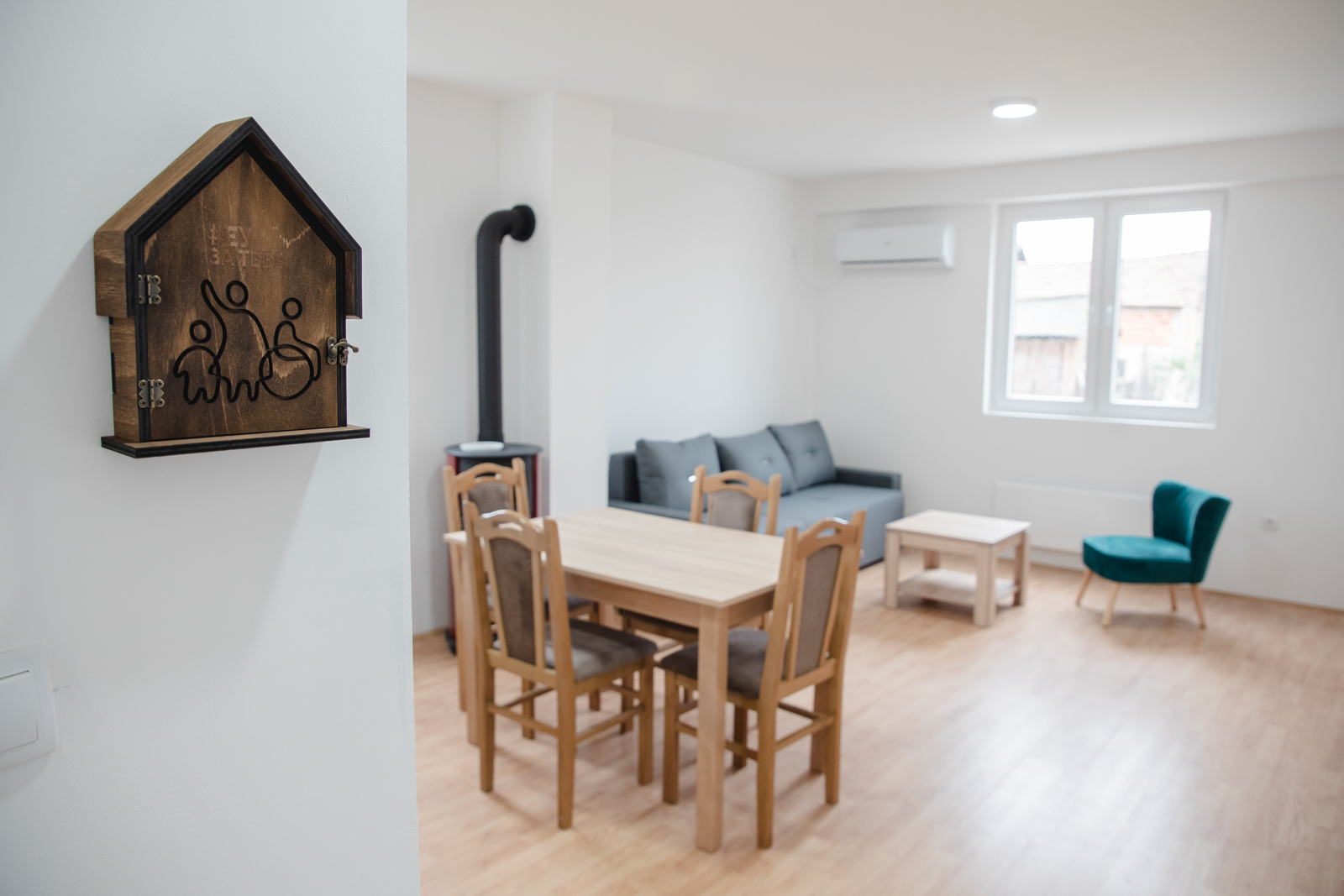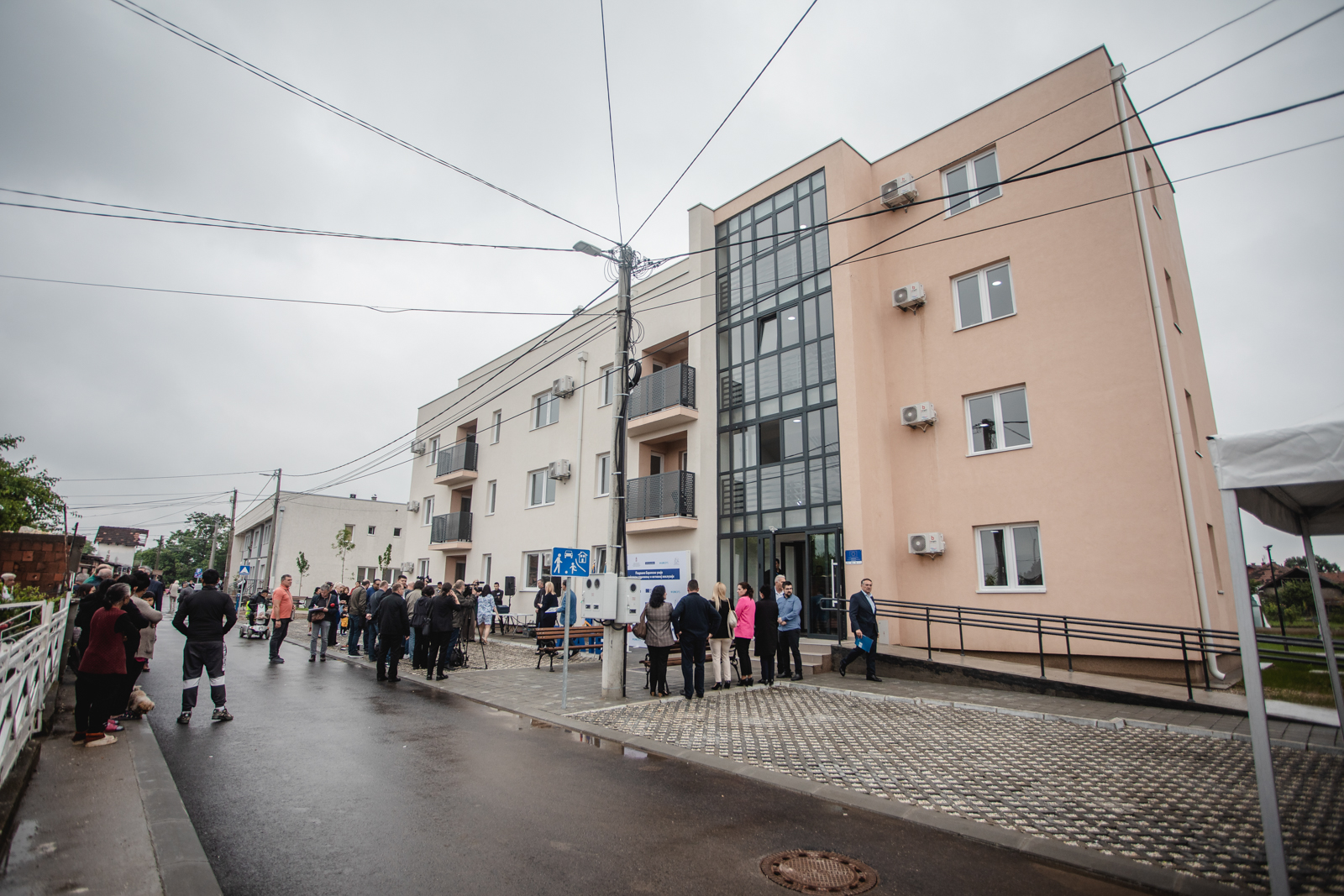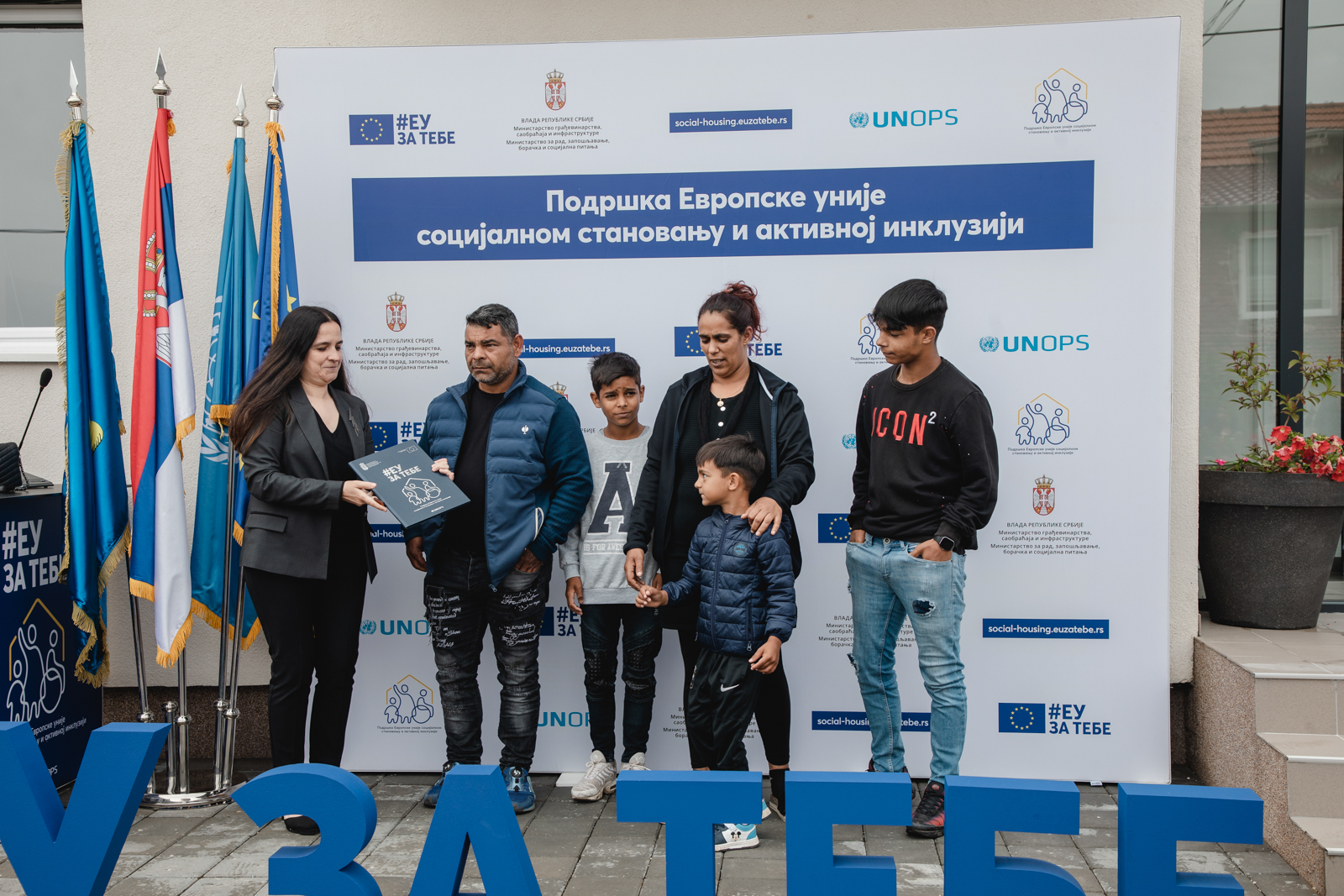25 families moved into the new social housing building in Svilajnac with the support of the EU
Today, 25 families have moved into a newly built building for social housing in Svilajnac. The programme "European Union Support to Social Housing and Active Inclusion" (EU SHAI) provided fully furnished and equipped apartments for families belonging to the most vulnerable social groups.
The keys to the new apartments were handed over by the mayor of Svilajnac Predrag Milanović, minister for human and minority rights and social dialogue Tomislav Žigmanov, minister of labour, employment, veterans and social affairs Nikola Selaković, head of the First Department of Operations at the EU Delegation in Serbia Elvira Angulo Rodríguez, president of the National Council of the Roma National Minority Dalibor Nakić, and Marko Vujačić, head of programme at UNOPS Serbia Multi-Country Office.

The event was opened by the mayor of Svilajnac Predrag Milanović, with words of gratitude on behalf of all the citizens of Svilajnac to all those who enabled the realisation of the project within which a building for social housing was built.
"I think today we are at the end of a big project and the people who get the keys today are starting a new life. Most of them lived completely illegally for decades and they were looking for the opportunity to live in better conditions, like all other residents of the municipality of Svilajnac. Today, after handing over the keys, these children will get a good space to live in, to learn, to live equally like their friends in the rest of Svilajnac. This is the European Union in action and I am grateful that a lot of funds have been invested in the territory of our municipality. I would also like to thank the Centre for Social Welfare and the entire municipal administration and UNOPS, which implemented this project with us,'' Milanović said.

Twenty-five families from Svilajnac with a total of 70 members, who today get a roof over their heads, are actively supported in education, employment and self-employment, and access to social and health care services.
Elvira Angulo Rodríguez, head of Operations I at the Delegation of the European Union to Serbia, emphasised that today's event is a tangible result of the EU's support for social inclusion.
"We promote equality, solidarity, tolerance, inclusion - in short, the right to a decent life. Social inclusion is extremely important to the European Union because social cohesion and human rights are among the basic European values. We will always fight for equal opportunities for every European citizen. The EU is the largest donor in Serbia, and also the largest donor in the field of social inclusion,'' Angulo Rodríguez added.
She also added that in the last five years alone, the EU has donated and invested over 115 million euros in improving the living standards of the most vulnerable population.
''We believe that housing is the first step towards a better life and I am glad that we have the opportunity to provide it for a large number of citizens of Serbia. Project beneficiaries in Svilajnac, in addition to these apartments, also receive support in active inclusion, which includes support in education, increasing employability, employment, equipping households with furniture and household appliances, psychological and legal support,'' the representative of the EU Delegation in Serbia concluded.

Marko Vujačić, head of programme at UNOPS Serbia Multi-Country Office, which runs the EU SHAI programme, emphasised that UNOPS has been working in Serbia for 23 years and during that period, with the support of donors, especially the European Union, and in cooperation with the Government of the Republic of Serbia, implemented almost 1,500 projects similar to the one in Svilajnac.
"I am grateful for the opportunity to be part of projects that take care of the most vulnerable social groups. Thank you to the European Union for the long-term trust and support that enabled the realisation of these activities. The project in Svilajnac is part of a broader initiative, within which social housing and active inclusion projects are implemented in 18 other places in Serbia. That programme is part of the European integration of our country, but the most important are the concrete results achieved.''

Addressing the beneficiaries, Vujačić expressed his belief that today they are not only getting the keys to new homes but also more predictability and security.
The president of the National Council of the Roma National Minority Dalibor Nakić expressed his satisfaction with the completion of the project that will enable the Roma in Svilajnac to live a dignified life and support in improving the quality of life, especially in education and health protection.
Tomislav Žigmanov, minister for human and minority rights and social dialogue, emphasised the importance of the Municipality of Svilajnac recognising the needs of the most vulnerable population and implementing a project in partnership with international organisations and local institutions in which 25 families are moving into new homes today. Žigmanov especially thanked the European Union, which made it possible to build a new building for social housing.
"The social integration of the Roma community implies the improvement of living conditions, leaving informal, substandard settlements and living in a space that includes water, electricity, and heating. However, social integration does not end there. It is necessary to support education, health care, and increase employability,'' Žigmanov concluded.

The minister of labour, employment, veterans and social affairs Nikola Selaković expressed his satisfaction that thanks to the synergy of the state, local institutions, the European Union and UNOPS, the most vulnerable social groups have been provided with a dignified life. The minister particularly emphasised the importance of empowering the beneficiaries of the project in Svilajnac to become self-sufficient and financially independent by increasing the opportunity to get a job or start their own business.
Saša Stanisavljević, one of the project beneficiaries, addressed the audience and thanked everyone who made it possible for his family to move into a new home.
"I am a single father, I live with my children without electricity and water. I am overjoyed that from today my children will live in normal conditions and that they will have their own room. I am very grateful to the teacher who helps the children in learning through this project, and I am grateful for the health examinations that have been made possible for me,'' said Stanisavljević.
The European Union has allocated 27 million euros for the "EU Support for Social Housing and Active Inclusion" programme, which, in addition to Svilajnac, is implemented in 18 other cities and municipalities in Serbia. Within this Program, 381 families receive a roof over their heads and support in active inclusion.


